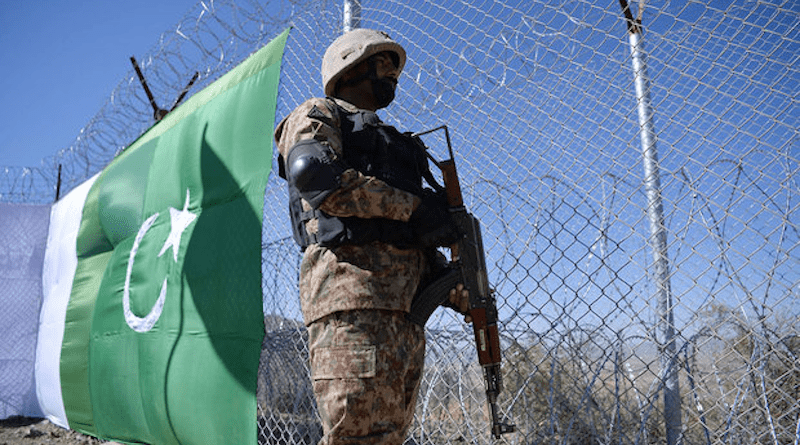Impact Of Pakistan’s Decision To Deport Illegal Afghan Immigrants On Regional Stability – OpEd
The cultural, religious, and political ties between Afghanistan and Pakistan have a long and complicated history. The First Anglo-Afghan War (1839–1842), the Third Anglo-Afghan War (1919), the Durand Line dispute (1893–present), and the Afghan Civil War (1978–2001) are just a few of the many wars and conflicts that have broken out between the two countries.
Following the Soviet invasion of their homeland in 1979, a sizable number of Afghans migrated to neighboring Pakistan in search of safety from communist rule and support from the US and other countries. When the US-led war on terror began in 2001, Pakistan emerged as a critical ally in the fight against the Taliban and al-Qaeda. Still, it also came under fire for allegedly providing support and refuge to terrorist groups. Deporting 1.7 million Afghans without documentation is Pakistan’s stated goal for 2023; many of these individuals fled their nation after the Taliban took over in 2021. Human rights groups and the Taliban administration expressed their dissatisfaction with Pakistan’s move and urged it to provide security and time to the most vulnerable Afghans.
The government of Pakistan has taken courageous action to protect its people. Millions of Afghan refugees have been residing in the nation for decades, presenting a lot of problems and hazards to Pakistan’s stability and resources. The Pakistani government, however, has shown its dedication to solving these problems by cracking down on illegal Afghans who threaten the country’s security and interests. On November 1, 2023, Pakistan will take a bold step toward protecting its borders and safeguarding the safety of its citizens by beginning the repatriation of an estimated 1.7 million illegal Afghans. The government’s will to combat militancy, smuggling, and other crimes that endanger the country’s safety and security is fully displayed here. The future of Pakistan and its people deserves better, and we can only hope that this decision will bring them that.
Pakistan’s recent proposal to expel illegal Afghan immigrants provoked an immense amount of opposition. Given the division of the Pashtun population between Afghanistan and Pakistan, the action may potentially exacerbate tensions between Afghans and local Pashtuns. The decision could potentially impact the Pashtuns’ continuous quest for self-identity. Some Pakistani government officials have criticized the Afghan refugees with rebellious language, further dividing the nation over the matter. This has engendered animosity between the two factions, raising concerns regarding the potential escalation of hostilities.
The provision of educational funding for Afghan students by the Pakistani government commenced over three decades ago. As per the United Nations High Commissioner for Migrants (UNHCR), an estimated 70% of Afghan migrants residing in Pakistan coexist with their host populations in both metropolitan and rural regions. Pakistan’s national education system has provided numerous advantages to this population of approximately 500,000 children of school age. Despite the challenges posed by the Pakistani education system, the government has upheld a lenient stance regarding the enrollment of Afghan refugee children in public institutions.
Government scholarship programs have additionally assisted students in Afghanistan. Muhammad Sadiq, Pakistan’s Special Representative for Afghanistan, announced in November 2022 that the country would award more than 4,500 scholarships to Afghan pupils for the upcoming academic year. Although both refugee and Pakistani children may benefit from the RAHA education programs, which redirect much-needed funds toward improving the quality and efficacy of Pakistan’s national education system, they may not.
Due to the ongoing violence in their own country, many Afghans have fled to neighboring countries such as Pakistan, Iran, India, and Turkey. Regarding providing for the basic needs of these new arrivals, Pakistan has been the most generous, providing food, shelter, and medical treatment in designated refugee camps. Although Iran has provided some assistance to Afghan refugees, life in the camps is not as good as it is in Pakistan.
One may argue that Pakistan’s move to expel illegal Afghan immigrants is an effort to strengthen regional security and stability. For decades, millions of Afghan refugees have lived in Pakistan, posing several problems for the nation. Islamabad claims that terrorists operating from Afghanistan carried out recent strikes on the Pakistani side of the border, although there is evidence to suggest otherwise. Once the Taliban are back in power in Afghanistan, Pakistan hopes that cross-border terrorism and murder will cease. To curb immigrants’ abuse of irregular border crossings and business links, Pakistan is also keen to develop a credible, internationally recognized immigration system.
Pakistan hopes to relocate Afghans to other countries or Afghanistan itself, and it anticipates help and cooperation from the international community and sympathetic nations, such as the Taliban leadership in Afghanistan. The government of Pakistan believes that expelling the illegal immigrants is in the country’s best interest, in keeping with its humanitarian duties, and would contribute to maintaining long-term peace in the area.

